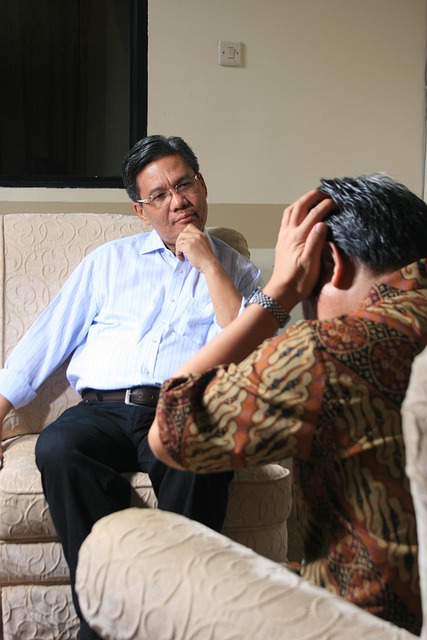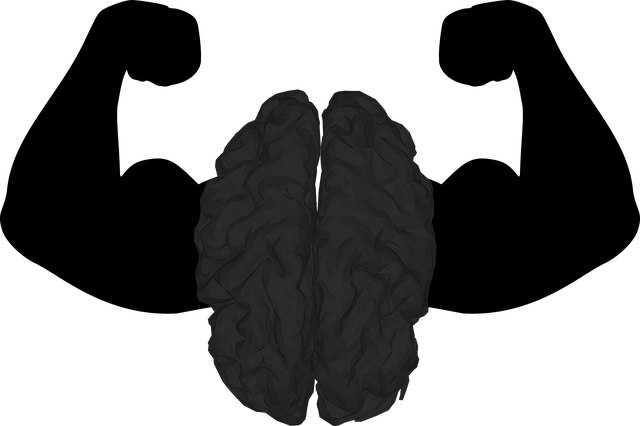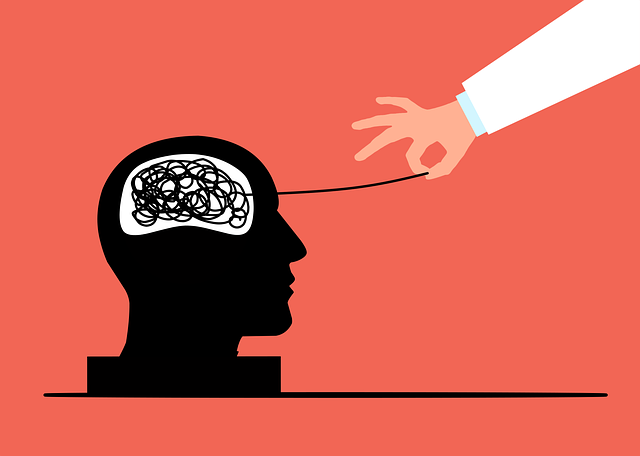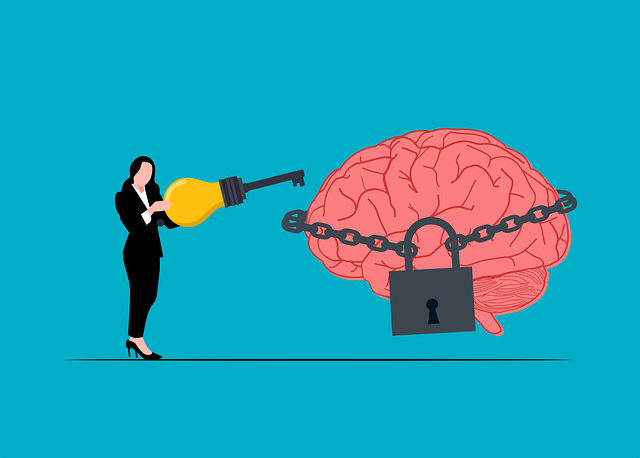Obsessive-Compulsive Disorder (OCD) is a chronic mental health condition characterized by intrusive thoughts and repetitive behaviors, significantly impacting daily life. Mental health counseling plays a crucial role in managing OCD through evidence-based therapeutic approaches like Cognitive Behavioral Therapy (CBT) and Exposure and Response Prevention (ERP). These therapies help individuals challenge negative thought patterns, reduce anxiety, and gain control over symptoms. Local therapy options, including specialized counseling centers, offer personalized treatments tailored to individual needs, empowering clients to improve their mental health and quality of life. Integrating lifestyle changes with professional counseling enhances recovery through mindfulness, exercise, and structured routines.
Obsessive-Compulsive Disorder (OCD) can significantly impact daily life, causing anxiety and distress. This article explores local therapy options for managing OCD, emphasizing the crucial role of mental health counseling. We delve into evidence-based approaches like Cognitive Behavioral Therapy (CBT) and Exposure and Response Prevention (ERP), as well as the benefits of support groups and lifestyle changes. Discover how individuals have achieved transformation through accessible, local OCD therapy, combining professional guidance with community resources.
Understanding Obsessive-Compulsive Disorder (OCD) and Its Impact on Daily Life

Obsessive-Compulsive Disorder (OCD) is a chronic mental health condition characterized by intrusive thoughts and repetitive behaviors that individuals feel compelled to perform. These obsessions and compulsions can significantly impact daily functioning, causing distress and disrupting routine activities. Those affected may spend hours each day engaging in these rituals, which often only provide temporary relief from anxiety.
The symptoms of OCD can manifest in various ways, such as excessive handwashing, checking behaviors, counting rituals, or intrusive thoughts related to contamination, symmetry, or aggression. Individuals with OCD recognize that their obsessions and compulsions are irrational but feel unable to resist them. This condition often develops during adolescence or early adulthood, and without proper treatment, it can persist for years, affecting personal relationships, work performance, and overall quality of life. Mental health counseling is a critical approach in managing OCD, helping individuals develop coping strategies and challenge their obsessive thoughts and behaviors.
The Role of Mental Health Counseling in OCD Treatment

Mental health counseling plays a pivotal role in treating Obsessive-Compulsive Disorder (OCD). It is a form of psychotherapy that helps individuals understand and manage their OCD symptoms effectively. Through one-on-one sessions with a qualified mental health counselor, patients can explore the underlying causes and triggers of their obsessions and compulsions. Counselors utilize evidence-based techniques such as cognitive-behavioral therapy (CBT) to challenge negative thought patterns, reduce anxiety, and teach individuals coping strategies to manage OCD symptoms in the long term.
In the context of OCD treatment, mental health counseling offers a safe space for patients to openly discuss their experiences without judgment. Counselors assist clients in developing self-awareness, identifying unhealthy behaviors, and learning how to make gradual changes that can significantly improve their quality of life. Regular sessions enable ongoing support, progress tracking, and the modification of strategies as needed, ensuring a personalized approach to OCD management.
Local Therapy Options for OCD: An Overview

For individuals seeking local therapy options for OCD, a range of effective approaches are available through specialized mental health counseling services. One prominent method is Cognitive Behavioral Therapy (CBT), which focuses on identifying and modifying unhelpful thought patterns and behaviors associated with OCD. CBT helps patients gain control over their symptoms by learning coping strategies to manage intrusive thoughts and compulsive actions.
Additionally, Exposure and Response Prevention (ERP) therapy has emerged as a powerful tool in the treatment of OCD. ERP involves gradual exposure to feared situations or objects while preventing the typical compulsive responses. This process empowers individuals to face their anxieties and reduce the urge to engage in obsessive rituals, fostering greater independence and improved mental health. Local counseling centers often offer these evidence-based therapies, tailoring them to meet the unique needs of each client.
Cognitive Behavioral Therapy (CBT): A Powerful Tool Against OCD

Cognitive Behavioral Therapy (CBT) is a highly effective and evidence-based approach to treating Obsessive-Compulsive Disorder (OCD). This form of mental health counseling focuses on identifying and modifying unhelpful thought patterns and behaviors that contribute to OCD symptoms. Through CBT, individuals learn to challenge and change their negative beliefs and engage in different behaviors to reduce anxiety and compulsions.
By working with a trained therapist, patients can develop coping strategies tailored to their specific needs. CBT helps people understand the relationship between their thoughts, feelings, and behaviors, enabling them to gain control over their OCD. This therapy offers a practical and efficient way to manage symptoms, improve quality of life, and reduce the impact of OCD on daily functioning.
Exposure and Response Prevention (ERP): Facing Fears to Overcome OCD

Exposure and Response Prevention (ERP) is a powerful therapy for OCD, focusing on gradually exposing individuals to feared situations or objects while preventing them from engaging in compulsive rituals. This approach empowers people to confront their fears head-on, understanding that the anticipated anxiety will pass without performing their usual coping mechanisms. Through this process, patients learn to manage and reduce their anxiety over time.
ERP is often integrated into mental health counseling sessions, where trained therapists guide individuals through a structured series of exercises tailored to their specific OCD triggers. By facing their fears in a safe environment, patients gain valuable insights into their disorder and develop healthier coping strategies. This evidence-based method has shown remarkable success rates, offering long-lasting relief from OCD symptoms and improving overall mental health counseling outcomes.
Support Groups and Community Resources for OCD Management

Support groups play a significant role in managing Obsessive-Compulsive Disorder (OCD). These groups provide a safe and non-judgmental environment for individuals with OCD to share their experiences, learn from others, and gain valuable insights into coping strategies. Facilitated by mental health counseling professionals, these support networks often become powerful tools in the journey towards recovery.
Community resources also offer a wealth of assistance. Local mental health clinics, non-profit organizations, and community centers may provide specialized programs tailored to OCD management. These initiatives can include therapy sessions, education workshops, and peer support meetings. Leveraging these local resources empowers individuals with OCD to access affordable and accessible care, fostering a sense of community and enhancing their overall well-being.
Integrating Lifestyle Changes with Professional Counseling for Better Results

Integrating lifestyle changes with professional mental health counseling is a powerful approach for managing OCD effectively. Beyond traditional therapy sessions, individuals can enhance their recovery by adopting daily habits that support their mental well-being. This might include practicing mindfulness techniques to stay present and reduce anxiety, engaging in regular physical exercise, which has been shown to boost mood and alleviate OCD symptoms, and establishing structured routines to provide a sense of control and predictability.
By combining these lifestyle adjustments with evidence-based counseling methods like exposure and response prevention (ERP), individuals can experience better outcomes. ERP therapy, for instance, helps patients gradually face their fears while learning coping strategies. When this is coupled with consistent self-care practices, it empowers individuals to manage their OCD symptoms more independently and improves overall quality of life.
Success Stories: Real-Life Transformations Through Local OCD Therapy

Many individuals struggling with Obsessive-Compulsive Disorder (OCD) have found hope and transformation through local therapy, proving that specialized mental health counseling can make a profound impact on one’s life. These success stories showcase real-life examples of how effective treatment can be, offering a glimmer of light for those who may feel trapped by OCD’s relentless symptoms.
Through personalized therapy sessions, individuals have learned coping mechanisms and strategies to manage their OCD. By engaging in evidence-based practices like exposure and response prevention (ERP), they’ve faced their fears and broken free from the cycle of obsessions and compulsions. These transformations extend beyond numbers on a scale; they represent improved quality of life, restored confidence, and the freedom to live without constant anxiety.
